Luca Marenzio: Solo e pensoso i più deserti campi

Solo e pensieroso mi aggiro e misuro a passi
(continua)
(continua)
inviata da Riccardo Venturi 14/2/2016 - 08:14
I'm Your Captain (Closer to Home)
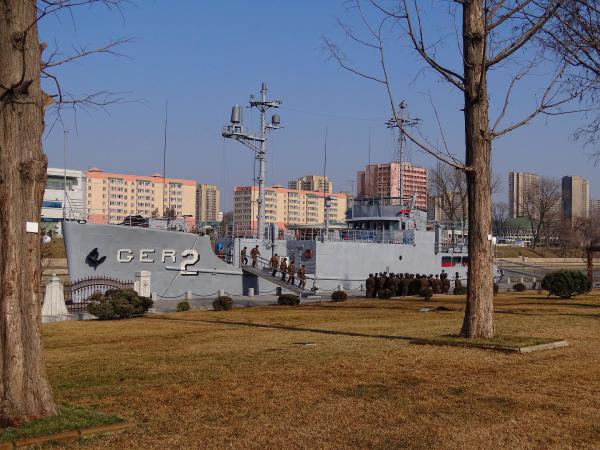
Una delle più famose (e belle) canzoni dei Grand Funk Railroad, racconta del capitano di una nave che, nel corso di un viaggio, è caduto ammalato e, forse nel delirio della febbre, teme di perdere il comando, che la sua sua nave gli sia sottratta, o che addirittura la sua ciurma si stia per ammutinare, o che l’imbarcazione sia attaccata da nemici, da pirati... Teme, in definitiva, di essere alla fine del suo viaggio terreno e di non poter riportare la pelle in salvo a casa...
Una canzone onirica o, meglio, lisergica, come era quasi d’obbligo in quegli anni...
E infatti molti ne hanno interpretato il significato come un “viaggio allucinante”, moderna Odissea omerica scaturita dall’LSD... Altri invece hanno ritenuto che “I'm Your Captain” abbia a che fare con la guerra in Vietnam... Senza voler abbracciare l’interpretazione, a mio avviso molto forzata, che il capitano sia Nixon che stava... (continua)
Una canzone onirica o, meglio, lisergica, come era quasi d’obbligo in quegli anni...
E infatti molti ne hanno interpretato il significato come un “viaggio allucinante”, moderna Odissea omerica scaturita dall’LSD... Altri invece hanno ritenuto che “I'm Your Captain” abbia a che fare con la guerra in Vietnam... Senza voler abbracciare l’interpretazione, a mio avviso molto forzata, che il capitano sia Nixon che stava... (continua)
Bernart Bartleby 13/2/2016 - 23:42
Er soudarded zo gùisket é ru [Ar soudarded zo gwisket e ruz]
Max Ar Fur
![Er soudarded zo gùisket é ru [Ar soudarded zo gwisket e ruz]](img/upl/kazhdu.gif)
English translation by Richard Gwenndour
Piacenza (Plesañs), 13.2.2016
Piacenza (Plesañs), 13.2.2016
THE SOLDIERS ARE DRESSED IN RED
(continua)
(continua)
inviata da Richar Gwenndour 13/2/2016 - 09:56
Fila la lana
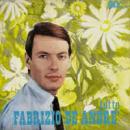
Dal blog Fabrizio de André in English
"Fila la lana" was presented as a translation of a popular medieval French song from the 15th century. In fact the French source song was "File la laine" composed by Robert Marcy in 1948, popularized by Jacque Douai in 1955. The War of Valois in De André's version is better known as the War of the Breton Succession (1341-1364). The original French version speaks of the "Monsieur of Malbrough" which refers to a 1709 battle in the War of the Spanish Succession depicted in one of the most famous of French folk songs, "Marlbrough s'en va-t-en guerre." - Dennis Criteser
SPIN THE WOOL
(continua)
(continua)
inviata da Riccardo Venturi 13/2/2016 - 08:48
Girotondo

Dal blog Fabrizio de André in English
In "Girotondo," De Andrè marries the joyous melody of a popular song "Marcondiro'ndera" with the deadly serious theme of the possible annihilation of humankind through the use of nuclear weapons in war, intensified with the use of a chldren's chorus. After the success of "La canzone di Marinella," Italy's state television station Rai invited De Andrè often to sing his big hit. But De Andrè refused until he could choose what material to present. Among other songs, he chose "La guerra di Piero" and "Girotondo," anti-war anthems that reflected De Andrè's deeply held pacifism. - Dennis Criteser
RING-AROUND-THE-ROSIE
(continua)
(continua)
inviata da Riccardo Venturi 13/2/2016 - 08:41
Coda di Lupo

Dal blog Fabrizio de André in English
Coda di lupo" must be understood in the context of the failure and dissolution of various protest movements in 1976 and 1977, including the Metropolitan Indians, anarchists who wore face paint, dressed like hippies, listened to rock music and enjoyed acid and weed, and who protested bourgeois values through urban guerilla activism, occupying universities, factories, etc.
Rimini grew out of De André's disappointments with the political events of the previous couple of years. In close collaboration with Massimo Bubola, a young 24-year-old who had just released his first album, De André explored several social and political themes, including abortion, homosexuality, and how the petty bourgeois attempted to move into the ranks of the powerful and rise above the political and social turmoil of the times. The music has more influence from American rock and... (continua)
Coda di lupo" must be understood in the context of the failure and dissolution of various protest movements in 1976 and 1977, including the Metropolitan Indians, anarchists who wore face paint, dressed like hippies, listened to rock music and enjoyed acid and weed, and who protested bourgeois values through urban guerilla activism, occupying universities, factories, etc.
Rimini grew out of De André's disappointments with the political events of the previous couple of years. In close collaboration with Massimo Bubola, a young 24-year-old who had just released his first album, De André explored several social and political themes, including abortion, homosexuality, and how the petty bourgeois attempted to move into the ranks of the powerful and rise above the political and social turmoil of the times. The music has more influence from American rock and... (continua)
TAIL OF THE WOLF
(continua)
(continua)
inviata da Riccardo Venturi 13/2/2016 - 08:10
The Girl I Left Behind Me
anonimo
L’introduzione inglese al brano è ripresa da Contemplator, o da uno dei tanti siti che lo citano.
Invito a leggere anche l’articolata introduzione di Cattia Salto sul suo sito Terre Celtiche, dove c’è anche la sua traduzione italiana del brano, che riporto:
Invito a leggere anche l’articolata introduzione di Cattia Salto sul suo sito Terre Celtiche, dove c’è anche la sua traduzione italiana del brano, che riporto:
LA RAGAZZA CHE HO LASCIATO DIETRO DI ME
(continua)
(continua)
inviata da Bernart Bartleby 12/2/2016 - 15:12
Stornelli d’esilio
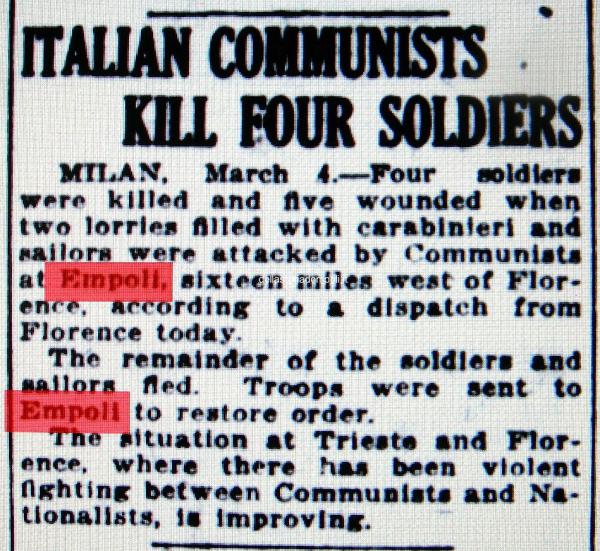
Strofe di anonimi autori antifascisti cantate sulla stessa aria degli “Stornelli d’esilio” di Pietro Gori, di cui è citato il ritornello:
Hanno ammazzato Giovanni Berta
dei fasci fiorentini [o capo degli assassini]
è stato vendicato
Spartaco Lavagnini.
La nostra patria è il mondo intero
la nostra legge è la libertà
e noi viviamo d'un sol pensiero
liberarla l'umanità.
Hanno ammazzato Giovanni Berta
figlio di pescecani
viva quel comunista
che gli pestò le mani!
La nostra patria è il mondo intero
la nostra legge è la libertà
e noi viviamo d'un sol pensiero
liberarla l'umanità.
1921, Annus Horribilis: a Livorno i socialisti si spaccavano e nasceva il Partito Comunista d’Italia; in Germania Adolf Hitler diventava presidente del NSDAP, il Partito Naz(ional-social)ista (dei Lavoratori Tedeschi); a Roma Mussolini fondava il Partito Nazionale Fascista, evoluzione dei Fasci di Combattimento... (continua)
Hanno ammazzato Giovanni Berta
dei fasci fiorentini [o capo degli assassini]
è stato vendicato
Spartaco Lavagnini.
La nostra patria è il mondo intero
la nostra legge è la libertà
e noi viviamo d'un sol pensiero
liberarla l'umanità.
Hanno ammazzato Giovanni Berta
figlio di pescecani
viva quel comunista
che gli pestò le mani!
La nostra patria è il mondo intero
la nostra legge è la libertà
e noi viviamo d'un sol pensiero
liberarla l'umanità.
1921, Annus Horribilis: a Livorno i socialisti si spaccavano e nasceva il Partito Comunista d’Italia; in Germania Adolf Hitler diventava presidente del NSDAP, il Partito Naz(ional-social)ista (dei Lavoratori Tedeschi); a Roma Mussolini fondava il Partito Nazionale Fascista, evoluzione dei Fasci di Combattimento... (continua)
Bernart Bartleby 12/2/2016 - 14:24
Quando Bandiera Rossa si cantava
anonimo

Invito a leggere “Quando bandiera rossa si cantava... Ragazzi di Villa Argine condannati per offese al Duce”, di Franco Piccinini, articolo pubblicato su sulla rivista La Piva dal Carner, ottobre 2015, negli atti di un seminario musicale tenutosi ad Orta San Giulio nel 2015.
Racconta di quando una sera del 1936 un gruppo di ragazze e ragazzi di Cadelbosco, località La Rocca, Reggio Emilia, furono sorpresi a cantare “Quando Bandiera Rossa si cantava” da un fascistello locale e da questi denunciati in blocco. Furono tutti condannati “per offese a S.E. il Capo del Governo e grida sediziose” e condannati chi a sei, chi a tre mesi con la condizionale e a svariate centinaia di Lire di multa e ammenda…
Racconta di quando una sera del 1936 un gruppo di ragazze e ragazzi di Cadelbosco, località La Rocca, Reggio Emilia, furono sorpresi a cantare “Quando Bandiera Rossa si cantava” da un fascistello locale e da questi denunciati in blocco. Furono tutti condannati “per offese a S.E. il Capo del Governo e grida sediziose” e condannati chi a sei, chi a tre mesi con la condizionale e a svariate centinaia di Lire di multa e ammenda…
Bernart Bartleby 11/2/2016 - 15:41
Fabrizio De André: Jamin-a

Dal blog Fabrizio De André in English
In De Andrè's words, "Jamína is not a dream, but rather the hope for respite. A respite in the face of possible gale force conditions at sea, or even a shipwreck. I mean that Jamina is the hypothesis of a positive adventure that, in a corner of the fantasy of a sailor, always finds space and respite. Jamina is the companion in an erotic voyage that every sailor hopes for, or better, expects to encounter in every place, after the dangerous broadsides subjected to by an enemy sea or an imprudent commander." - Dennis Criteser
JAMIN-A
(continua)
(continua)
inviata da Riccardo Venturi 11/2/2016 - 07:57
Canzone del padre

Dal blog Fabrizio De André in English
"Per the album notes, the worker "has understood that he is a finished man with no possibility of recovery, that his acts will always be individualistic, striving for his own personal needs, and that by attaining more power one doesn't escape one's condition of isolation and anxiety. The bomb that was tossed with force, with anger and with a sense of vendetta in the dream, now in reality becomes a moment of exhilaration and, obviously of lucidity." - Dennis Criteser
FATHER'S SONG
(continua)
(continua)
inviata da Riccardo Venturi 11/2/2016 - 06:58
Mourir pour des idées

Dal blog Fabrizio De André in English
"Morire per delle idee" is a translation/adaptation of Georges Brassens's "Mourir pour des idées" which was written in response to strong criticism for another of his songs "Les deux oncles," an anti-war song that was controversial because it treated two French brothers equally - one a British sympathizer and the other a collaborationist.
Canzoni, released in 1974, was a "filler" album, like Volume III, desired by De André's label. The only three previously unreleased songs here are covers of Dylan's "Desolation Row" and of two songs by Georges Brassens. Also included are two covers of Leonard Cohen songs.
Canzoni, released in 1974, was a "filler" album, like Volume III, desired by De André's label. The only three previously unreleased songs here are covers of Dylan's "Desolation Row" and of two songs by Georges Brassens. Also included are two covers of Leonard Cohen songs.
DYING FOR SOME IDEAS
(continua)
(continua)
inviata da Riccardo Venturi 11/2/2016 - 05:52
Mourir pour des idées
Attribuita a NTBAHA [sic] e datata 2/11/2014. Appare come una versione letterale dell'originale francese.
ان نموت من اجل افكار
(continua)
(continua)
inviata da Riccardo Venturi 11/2/2016 - 05:45
Mourir pour des idées
Svensk version av Ola Henricsson och Örjan Hjorth.
Att dö för idéer è la versione in lingua svedese (il titolo è l'esatta resa in svedese di quello originale) interpretata da Ola Henricsson e Örjan Hjorth (ma la traduzione è del solo Ola Henricsson). Li vediamo qui interpretarla in uno spettacolo a bordo della nave S/S Marieholm, ormeggiata a Göteborg, il 6 marzo 2015. Il testo non è purtroppo reperibile in rete; ci occuperemo appena possibile di trascriverlo all'ascolto. [RV]
Att dö för idéer è la versione in lingua svedese (il titolo è l'esatta resa in svedese di quello originale) interpretata da Ola Henricsson e Örjan Hjorth (ma la traduzione è del solo Ola Henricsson). Li vediamo qui interpretarla in uno spettacolo a bordo della nave S/S Marieholm, ormeggiata a Göteborg, il 6 marzo 2015. Il testo non è purtroppo reperibile in rete; ci occuperemo appena possibile di trascriverlo all'ascolto. [RV]
inviata da Riccardo Venturi 11/2/2016 - 04:50
Mourir pour des idées

Ripresa dai sottotitoli del video YouTube sopra proposto, con trascrizione diretta. La variante del portoghese utilizzato è chiaramente brasiliana.
MORRER POR IDEIAS
(continua)
(continua)
inviata da Riccardo Venturi 10/2/2016 - 20:41
La guerra di Piero
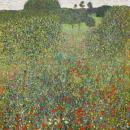
POLACCO / POLISH [2] - Szymon Gruda
Versione polacca cantabile di Szymon Gruda segnalatami da Kaśka Janiak (very cool) [KW]
da questa pagina
Versione polacca cantabile di Szymon Gruda segnalatami da Kaśka Janiak (very cool) [KW]
da questa pagina
PIERO
(continua)
(continua)
inviata da Kaśka Janiak tramite Krzysiek Wrona 10/2/2016 - 19:30
Mourir pour des idées

Dall'album "Suppliche e celebrazioni" (2008).
L'animazione è di Dario Faggella (http://www.faggella.it)
MORIR PER UN'IDEA
(continua)
(continua)
inviata da Riccardo Venturi 10/2/2016 - 18:30
Pe' Stefano
A tutti i poeti manca un verso: ogni tanto anche lo staff di Canzoni Contro la Guerra inciampa su qualche canzone dalla micidiale e irreparabile bruttezza, come questo rap in romanesco imitazione di un originale già esiziale per proprio conto, la cui funesta aura adombra ogni pur lodevole intenzione...
Io non sto con Oriana 10/2/2016 - 16:29
Fabrizio De André: Monti di Mola

Dal blog Fabrizio De André in English
"Monti di Mola" takes place on the Emerald Coast of Sardinia. De André called the song a metaphor showing the impossibility of reaching one's dreams in a society that has become bureaucratic and standardized, where the imagination of the culture can't expand to accept "impossible dreams" that are on the verge of coming true. The song is in the Gallurese dialect.
It took six years after the tremendous success of Creuza de mä for De André to release his next studio album, Le nuvole (The Clouds). In the meantime, he and Mauro Pagani explored several avenues of musical collaboration which did not come to fruition. De André had this to say about Le nuvole: "I realized that people are just pissed off, and since Le nuvole is a symbol of this dissatisfaction, the transference, the intermediary for this general discontent, I would say that the album was welcomed... (continua)
"Monti di Mola" takes place on the Emerald Coast of Sardinia. De André called the song a metaphor showing the impossibility of reaching one's dreams in a society that has become bureaucratic and standardized, where the imagination of the culture can't expand to accept "impossible dreams" that are on the verge of coming true. The song is in the Gallurese dialect.
It took six years after the tremendous success of Creuza de mä for De André to release his next studio album, Le nuvole (The Clouds). In the meantime, he and Mauro Pagani explored several avenues of musical collaboration which did not come to fruition. De André had this to say about Le nuvole: "I realized that people are just pissed off, and since Le nuvole is a symbol of this dissatisfaction, the transference, the intermediary for this general discontent, I would say that the album was welcomed... (continua)
MOUNTAINS OF MOLA
(continua)
(continua)
inviata da Riccardo Venturi 10/2/2016 - 09:55
Sidùn
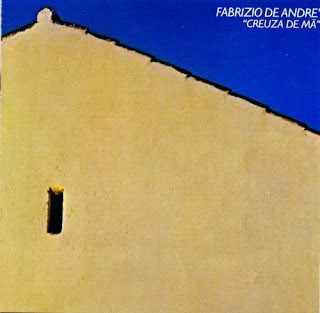
Dal blog Fabrizio De André in English
"Sidon is a coastal city halfway between the southern border of Lebanon and Beirut. At the time this song was written, Lebanon was in the midst of a civil war that began in 1975 and that saw Israel invade and push towards Beirut in 1982. In De André's words, "Sidon is the Lebanese city that gave us, beyond the letters of our alphabet, even the invention of glass. I imagined myself, after the sudden attack of General Sharon in 1982, as a middle-aged Arab man, dirty, desperate, certainly poor, holding in his arms his own son, chewed up by the steel tracks of an armored tank. . . . The 'little death' alluded to at the end of this song should not be confused with the death of a little boy. Rather it is understood metaphorically as the end of a civilization and culture of a small country: Lebanon, Phoenicia, which at its discretion was perhaps the greatest... (continua)
"Sidon is a coastal city halfway between the southern border of Lebanon and Beirut. At the time this song was written, Lebanon was in the midst of a civil war that began in 1975 and that saw Israel invade and push towards Beirut in 1982. In De André's words, "Sidon is the Lebanese city that gave us, beyond the letters of our alphabet, even the invention of glass. I imagined myself, after the sudden attack of General Sharon in 1982, as a middle-aged Arab man, dirty, desperate, certainly poor, holding in his arms his own son, chewed up by the steel tracks of an armored tank. . . . The 'little death' alluded to at the end of this song should not be confused with the death of a little boy. Rather it is understood metaphorically as the end of a civilization and culture of a small country: Lebanon, Phoenicia, which at its discretion was perhaps the greatest... (continua)
SIDON
(continua)
(continua)
inviata da Riccardo Venturi 10/2/2016 - 05:58
Nella mia ora di libertà

Dal blog Fabrizio De André in English
"In the final song, the worker realizes that individual protest has little chance of having results against power, and that to change things it's necessary to join with others and to act en masse, as did the students of May 1968 in France." - Dennis Criteser
IN MY HOUR OF FREEDOM
(continua)
(continua)
inviata da Riccardo Venturi 10/2/2016 - 05:23
Ballata degli impiccati

Dal blog Fabrizio De André in English
"La ballata degli impiccati" is closely related to a 1462 poem, "Ballade des pendus" by François Villon, written in prison while waiting for his execution. Whereas Villon asks for pity for the condemned, the lyrics of De Andrè and Bentivoglio express rancor for those who judged, for those who buried, even for those who remembered, all of whom will inevitably also meet their ends.
Tutti morimmo a stento, released in 1968, was one of the first concept albums in Italy. In De Andrè's own words, the album "speaks of death, not of bubble gum death with little bones, but of psychological death, moral death, mental death, that a normal person can encounter during his lifetime." After the success of Volume I, De André was provided for this next album a cutting edge recording studio complete with an 80-member orchestra, directed by Gian Piero Reverberi, and a... (continua)
"La ballata degli impiccati" is closely related to a 1462 poem, "Ballade des pendus" by François Villon, written in prison while waiting for his execution. Whereas Villon asks for pity for the condemned, the lyrics of De Andrè and Bentivoglio express rancor for those who judged, for those who buried, even for those who remembered, all of whom will inevitably also meet their ends.
Tutti morimmo a stento, released in 1968, was one of the first concept albums in Italy. In De Andrè's own words, the album "speaks of death, not of bubble gum death with little bones, but of psychological death, moral death, mental death, that a normal person can encounter during his lifetime." After the success of Volume I, De André was provided for this next album a cutting edge recording studio complete with an 80-member orchestra, directed by Gian Piero Reverberi, and a... (continua)
BALLAD OF THE HANGED MEN
(continua)
(continua)
inviata da Riccardo Venturi 9/2/2016 - 21:49
Fabrizio De André: Amico fragile
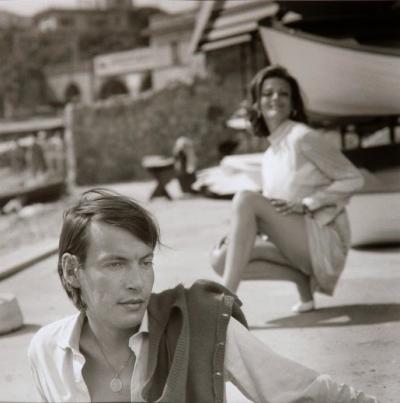
Dal blog Fabrizio De André in English
"De André wrote "Amico fragile" in a drunken rage after attending a party of rich Italians vacationing on Sardinia. They were only interested in having him play guitar and sing his songs, whereas De André wanted to engage people in discussions about events going on in Italy. He became ever more frustrated and inebriated with the shallowness of the evening, returning home to stay up all night and produce this "stream of semi-consciousness" rant. The song was a staple in his live shows and was one of De André's favorites." - Dennis Criteser
"De André wrote "Amico fragile" in a drunken rage after attending a party of rich Italians vacationing on Sardinia. They were only interested in having him play guitar and sing his songs, whereas De André wanted to engage people in discussions about events going on in Italy. He became ever more frustrated and inebriated with the shallowness of the evening, returning home to stay up all night and produce this "stream of semi-consciousness" rant. The song was a staple in his live shows and was one of De André's favorites." - Dennis Criteser
FRAGILE FRIEND
(continua)
(continua)
inviata da Riccardo Venturi 9/2/2016 - 20:47
Andrea
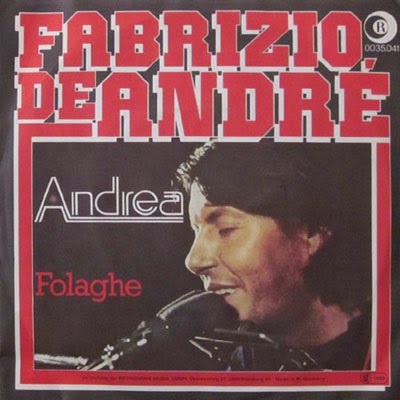
Dal blog Fabrizio De André in English
"Andrea" is both an anti-war song and a statement of solidarity with and acceptance of gays, as the song is about the love between two men (Andrea is a man's name in Italian). The setting for the song is World War I, which can be deduced because intense battles occurred on the ground in the mountains of Trent during WWI, whereas in WWII Trent suffered bombing from the air by the Germans toward the end of the war.
Rimini grew out of De André's disappointments with the political events of the previous couple of years. In close collaboration with Massimo Bubola, a young 24-year-old who had just released his first album, De André explored several social and political themes, including abortion, homosexuality, and how the petty bourgeois attempted to move into the ranks of the powerful and rise above the political and social turmoil of the times. The music... (continua)
"Andrea" is both an anti-war song and a statement of solidarity with and acceptance of gays, as the song is about the love between two men (Andrea is a man's name in Italian). The setting for the song is World War I, which can be deduced because intense battles occurred on the ground in the mountains of Trent during WWI, whereas in WWII Trent suffered bombing from the air by the Germans toward the end of the war.
Rimini grew out of De André's disappointments with the political events of the previous couple of years. In close collaboration with Massimo Bubola, a young 24-year-old who had just released his first album, De André explored several social and political themes, including abortion, homosexuality, and how the petty bourgeois attempted to move into the ranks of the powerful and rise above the political and social turmoil of the times. The music... (continua)
ANDREA
(continua)
(continua)
inviata da Riccardo Venturi 9/2/2016 - 20:36
Canzone per l’estate
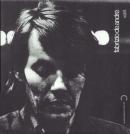
Dal blog Fabrizio De André in English
"The music of "Canzone per l'estate" is entirely De Gregori's, while the lyrics were co-written. De André described the song as somewhat autobiographical, describing the tension between the bourgeois life he grew up in and lived much of his life in, and his attraction to anarchism and to society's outcasts who seemed more genuine and alive than the upper classes. Indeed the song describes well the soul-sapping nature of a comfortable, prosperous life that takes one away from vitality and even political engagement ("your eyes closed to the people")." - Dennis Criteser
SONG FOR THE SUMMER
(continua)
(continua)
inviata da Riccardo Venturi 9/2/2016 - 20:25
La cattiva strada

Dal blog Fabrizio De André in English
"Literally, "cattiva strada" means "bad road." But in a moral sense, if you're straying down the wrong path, going down a slippery slope or leading someone astray, you're on a "cattiva strada" and more than a paving crew will be needed. Author and De André expert Cesare Romana observed the following about "La cattiva strada": "The song is among the most illustrative of the philosophy of a great moralist disguised as an 'immoralist.' The bad road represents a pirate ethic, and also the free port where the powers-that-be don't come. Thus it comes to be defined as bad, yet holding these mainstream powers at a distance endows a force most subversive and revolutionary that can be placed at our disposition: love. The fact is that De André never moved far from the bad road. He continued to think that the humanity, love and dignity of man resided there, and... (continua)
"Literally, "cattiva strada" means "bad road." But in a moral sense, if you're straying down the wrong path, going down a slippery slope or leading someone astray, you're on a "cattiva strada" and more than a paving crew will be needed. Author and De André expert Cesare Romana observed the following about "La cattiva strada": "The song is among the most illustrative of the philosophy of a great moralist disguised as an 'immoralist.' The bad road represents a pirate ethic, and also the free port where the powers-that-be don't come. Thus it comes to be defined as bad, yet holding these mainstream powers at a distance endows a force most subversive and revolutionary that can be placed at our disposition: love. The fact is that De André never moved far from the bad road. He continued to think that the humanity, love and dignity of man resided there, and... (continua)
THE ERRANT WAY
(continua)
(continua)
inviata da Riccardo Venturi 9/2/2016 - 18:41
C'era una volta
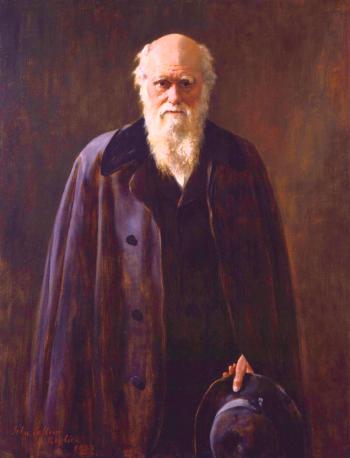
Chanson italienne – C'era una volta – Giorgio Laneve – 1976
Aux débuts des années '70, dans la vague « cantautorale » (chansonnière) italienne qui aura duré, plus ou moins, jusqu'à la fin de la décennie pour ensuite succomber (même musicalement) lors des années de strontium de la décennie suivante, Giorgio Laneve représenta une voix certes menue et polie, mais avec des traits d'originalité (et d'authentique poésie). Ingénieur électronique de formation, Giorgio Laneve commença fort jeune et, pendant une certaine période, il jouit même d'une certaine popularité, sans jouer des coudes (moi-même je me rappelle d'avoir vu une allusion à lui dans le journal de Mickey Mouse, je ne plaisante pas). En 1970, à 24 ans à peine, arriva à l'improviste en second au alors très célèbre « Disque pour l'été » avec Amore dove sei?Amour où es -tu ? , qui reste probablement sa chanson la plus célèbre. Il... (continua)
Aux débuts des années '70, dans la vague « cantautorale » (chansonnière) italienne qui aura duré, plus ou moins, jusqu'à la fin de la décennie pour ensuite succomber (même musicalement) lors des années de strontium de la décennie suivante, Giorgio Laneve représenta une voix certes menue et polie, mais avec des traits d'originalité (et d'authentique poésie). Ingénieur électronique de formation, Giorgio Laneve commença fort jeune et, pendant une certaine période, il jouit même d'une certaine popularité, sans jouer des coudes (moi-même je me rappelle d'avoir vu une allusion à lui dans le journal de Mickey Mouse, je ne plaisante pas). En 1970, à 24 ans à peine, arriva à l'improviste en second au alors très célèbre « Disque pour l'été » avec Amore dove sei?Amour où es -tu ? , qui reste probablement sa chanson la plus célèbre. Il... (continua)
IL ÉTAIT UNE FOIS
(continua)
(continua)
inviata da Marco Valdo M.I. 9/2/2016 - 15:23
Canzone per l’estate

In realtà, Fabrizio De André descrisse questa canzone (il cui testo è, sarà bene ricordarlo, stato scritto assieme a Francesco De Gregori) come in un certo qual modo autobiografica. Parla, secondo De André, della tensione tra la vita borghese in cui era cresciuto e aveva vissuto parte della sua vita, e l’attrazione per l’Anarchia e per gli “ultimi” della società, che gli sembravano molto più vivi e genuini delle classi superiori. Fatta salva l’oscurità del testo, caratteristica del resto saliente di quell’album “degregoriano”, si avverte comunque abbastanza bene l’attacco alla vita borghese, confortevole e prospera, che distoglie l’essere umano dalla vitalità e dall’impegno politico (gli “occhi chiusi sulla gente”). Per quel che mi riguarda, l’ho sempre avvertita molto come una canzone sulla dissoluzione della famiglia borghese.
Riccardo Venturi 9/2/2016 - 08:06
Il testamento di Tito

Dal blog Fabrizio De André in English
"Il testamento di Tito" takes us into the Old Testament to the Ten Commandments. Tito, the so-called good thief from the Syriac Infancy Gospel, recounts how he violated each of the commandments (except "Thou shalt not kill"), offering critiques along the way. De André considered this song one of his very best for its hard-hitting social impact." - Dennis Criteser
TITO'S WILL
(continua)
(continua)
inviata da Riccardo Venturi 9/2/2016 - 07:42
Il Pescatore

Dal blog Fabrizio De André in English
"Il pescatore" was released in 1970 as a single. One of De André's most popular songs, it never appeared on a studio album, but can be heard on several live albums." - Dennis Criteser
THE FISHERMAN
(continua)
(continua)
inviata da Riccardo Venturi 9/2/2016 - 07:27
La domenica delle salme
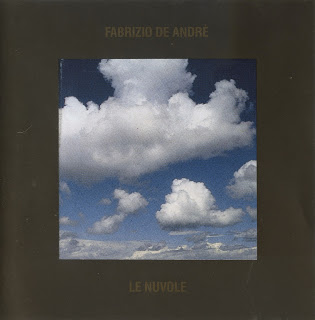
Dal blog Fabrizio De André in English
""La domenica delle salme" is one of De André's most political songs, full of references not easily discernible. The second verse refers to a Milan retirement home resident who was discovered dead under mysterious circumstances. The third verse may refer to a series of murders by a neo-Nazi duo who tagged themselves as Ludwig. The fourth verse refers to the Polish refugees who came to Italy after the fall of the Soviet Union and who worked the streets cleaning car windows (i.e., redoing the makeup of the capitalists heading off to the beach). The fifth verse refers to businessmen looking to profit from the opening of the countries of the former Soviet Union, and the sixth verse refers to the neo-Nazism that subsequently raised its head. The seventh verse may refer to the need for another visible symbol for members of the left and the right to use to... (continua)
""La domenica delle salme" is one of De André's most political songs, full of references not easily discernible. The second verse refers to a Milan retirement home resident who was discovered dead under mysterious circumstances. The third verse may refer to a series of murders by a neo-Nazi duo who tagged themselves as Ludwig. The fourth verse refers to the Polish refugees who came to Italy after the fall of the Soviet Union and who worked the streets cleaning car windows (i.e., redoing the makeup of the capitalists heading off to the beach). The fifth verse refers to businessmen looking to profit from the opening of the countries of the former Soviet Union, and the sixth verse refers to the neo-Nazism that subsequently raised its head. The seventh verse may refer to the need for another visible symbol for members of the left and the right to use to... (continua)
PSALM SUNDAY
(continua)
(continua)
inviata da Riccardo Venturi 9/2/2016 - 07:07
Carlo Martello torna [o: ritorna] dalla battaglia di Poitiers; o Carlo Martello
![Carlo Martello torna <i>[o: ritorna]</i> dalla battaglia di Poitiers; <i>o</i> Carlo Martello](img/thumb/c1095_130x140.jpeg?1328357200)
Dal blog Fabrizio De André in English
"This song was released in 1963 as the B side of a 45 with "Il fannullone" as the A-side. The text was written by a friend from childhood, Paolo Villagio, and the music is by De Andrè. The Battle of Poitiers occurred in 732, a battle between the Franks and the Moors in what is now northern France. The song is in the style of popular French pastourelles sung by medieval troubadours about encounters between knights and country girls. In 1965 a complaint was brought against De Andrè and his label Karim for obscene content in the lyrics. The case was settled in De Andrè's favor in 1968. The Italian in this song is an old style, and Riccardo Venturi has done a nice translation into a similarly "olde" style of English." - Dennis Criteser
CHARLES MARTEL RETURNS FROM THE BATTLE OF POITIERS
(continua)
(continua)
inviata da Riccardo Venturi 9/2/2016 - 06:56
Il fannullone
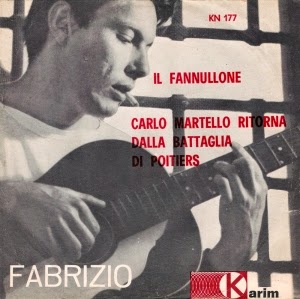
Dal blog Fabrizio De André in English
"Il fannul[l]one" was the A-side of De Andrè's third single on Karim, released in 1963. It was co-written with Paolo Villaggio, a childhood friend. There are several strains in this early song that will surface regularly in later songs: going against the grain of mainstream society, a sense of irony towards so-called respectable folk ("la gente per bene"), and an irreverent and playful attitude. The song no doubt sprang from the anti-conformist lifestyles of the two young authors. Riccardo Venturi called this song "deliciously revolutionary and subversive" and described it as a "hymn to doing nothing," where to do nothing is to live life truly, not allowing a dehumanized corporate complex to take it away from you." - Dennis Criteser
"Il fannul[l]one" was the A-side of De Andrè's third single on Karim, released in 1963. It was co-written with Paolo Villaggio, a childhood friend. There are several strains in this early song that will surface regularly in later songs: going against the grain of mainstream society, a sense of irony towards so-called respectable folk ("la gente per bene"), and an irreverent and playful attitude. The song no doubt sprang from the anti-conformist lifestyles of the two young authors. Riccardo Venturi called this song "deliciously revolutionary and subversive" and described it as a "hymn to doing nothing," where to do nothing is to live life truly, not allowing a dehumanized corporate complex to take it away from you." - Dennis Criteser
THE SLOUCH
(continua)
(continua)
inviata da Riccardo Venturi 9/2/2016 - 06:20
×
![]()


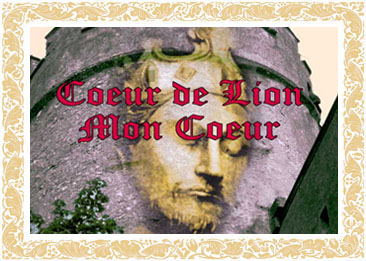
![Chacun de vous est concerné [incl. <em>Canzone del maggio</em> di Fabrizio De André]](img/thumb/c3706_130x140.jpeg?1328479274)
![Chacun de vous est concerné [incl. <em>Canzone del maggio</em> di Fabrizio De André]](img/upl/18025.jpg)



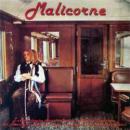
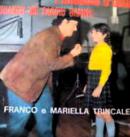


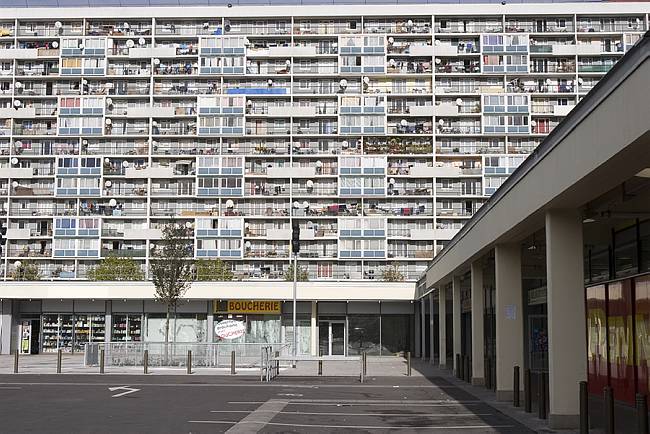
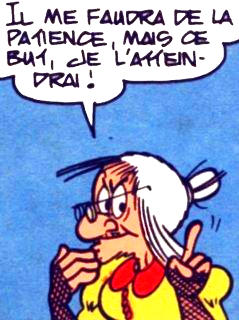
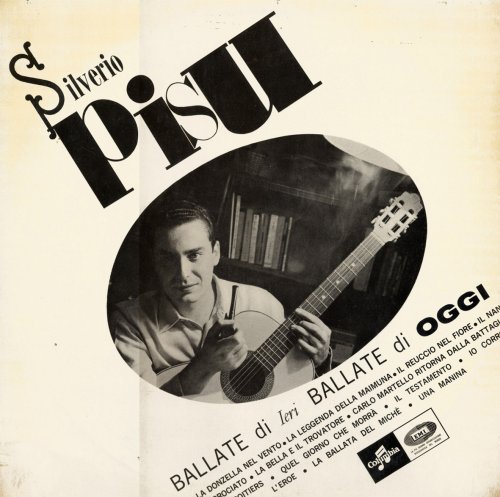
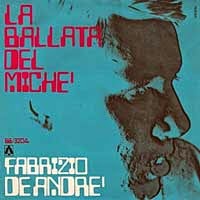

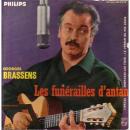


Tratta da Oilproject - Argomenti di Letteratura Italiana